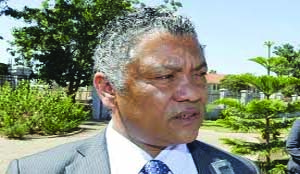SINCE being introduced more than a decade ago, the Farmer Input Support Programme remains one of the most important cogs in the support of small-scale farmers in Zambia.
In the current farming season, Government targeted to reach 1,000,000 farmers in the FISP, formerly known as the Fertiliser Support Programme (FSP), to ensure they get the much needed fertiliser and seed that they need to achieve a favourable yield.
The number of beneficiaries has been steadily growing with every passing farming season as more people seek help in achieving food security for themselves and their families.
Even then, the State is inundated with calls by stakeholders urging Government to increase the beneficiaries in the FISP programme.
Most recently, traditional leaders in Southern Province urged newly appointed Agriculture and Livestock Minister Given Lubinda to explore more avenues to increase the number of beneficiaries of FISP.
The chiefs stated that the move would help reduce poverty levels and address some cases of shortage of food in remote areas.
The traditional leaders’ argument was that with increased beneficiaries, agriculture would be boosted because it remained the main economic driver of the province.
This can only mean that other parts of the country share the same feelings and will want Government to equality increase beneficiaries.
It then comes to the conclusion that if these demands continue to reach Government, it will not only be difficult to meet them but it will be a huge cost to State coffers.
While the call for more people to benefit from FISP is welcome, it is also important to put in place measures that will help Government account for all the investment into the programme.
This is because several researches that have been undertaken, point to the fact that some unscrupulous people have made it their agenda to derail this important national programme, by interfering with its various processes.
Issues such as failure to supply FISP fertiliser to the intended beneficiaries, have been regular features in many seasons over the years.
This coupled with delayed delivery of the inputs to the farmers, have opened the programme to criticism.
The situation has not only dampened the spirit of some farmers because not only have they been left with no inputs for their fields, but in some instances have had to apply fertiliser to their crop long after the prescribed periods and have ended up with poor yields.
It is amazing how fertiliser meant for the poor small-scale farmer has ended up in the hands of dealers that sell to bigger and commercially viable farmers, leaving the poor peasants in the lurch.
It is thus important to take the Choma District Commissioner’s call to eliminate bogus FISP recipients, seriously.
Because the programme has been around for more than a decade now, it is only proper that many of these farmers would have been weaned off it by now because they can now afford sustain their agricultural activities on their own.
But it is the same bogus recipients that return to take the place of genuine farmers in need of support every season.
Their only mission is to benefit from the FISP and then re-sell the subsidised fertilizer at a commercial rate.
It is important that those charged with screening these farmers at community, district and provincial levels, actually do their jobs and ensure that they award the support to the correct people.
Further, this screening should not end at registration only, but should extend to monitoring of these farmers’ fields.
Agriculture extension officers should be alert to farmers that fail to effectively utilise fertiliser because this will result into them remaining on the beneficiaries list, when they should have graduated.
Farmers should also remember that the programme was not designed to benefit them alone but that they are supposed to pass on the benefits to the next generation of farmers once they no longer require that support.
Above all, Government should deal with gaps in the system that tend to delay the supply of inputs, as well as payment of farmers when they sell their produce to the Food Reserve Agency.







